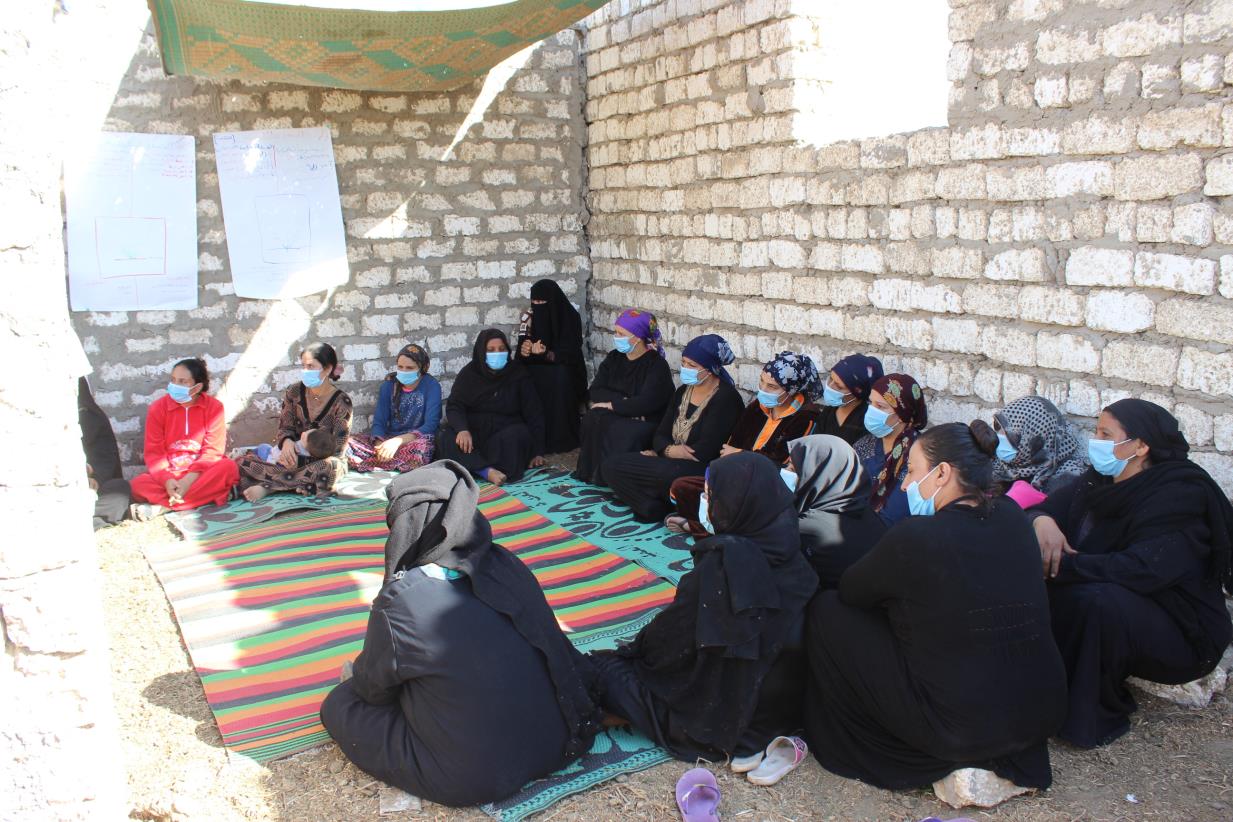Women’s Farmer Field School activities start in two villages in Minya governorate and roundtable discussion between strategic partners on FFS’s.

The Food and Agriculture Organization of the United Nations (FAO) in collaboration with the Non-Governmental Organization (NGO) Life Vision have started its all women Farmer Field School (FFS) activities on sugar beets in Beni Ebeid and Mansheit ElNasr villages in Minya governorate, Egypt. The main objective is to introduce Good Agricultural Practices (GAP) for the selected crop in order to enhance water productivity and management, and increase crop efficiency. Furthermore, a round table discussion meeting was planned gathering FAO, Life Vision and Minya’s key representatives from the Ministry of Agriculture (MoA) and the Ministry of Water Resources and Irrigation (MWRI), in order to discuss and improve the FFS implementation plan in Minya.
Using FAO’s FFS methodology, Life Vision have started applying the methodology to two different FFS’s with 18 women in Beni Ebeid village and 18 women in Mansheit ElNasr village. There are two fields in each FFS, an FAO recommended field and a traditional practices field. The sugar beet FFS’s in Minya governorate will run for 180 days, which represent the whole season for the sugar beet crop, which runs from September to May.
The FFS’s operate once a week, for two hours each session. The first hour starts with the women going to the field and analyzing the crop including any changes, the number of crops in the field, changes in the leaves, pests etc.... They then go back to the FFS and start writing and drawing what changes they saw in the field. Accordingly, farmers present their findings to the group and discuss their solutions and recommendations. The facilitator provides the presenter and the group with the ultimate solution based on the curriculum provided by FAO. The second hour is composed of a 10-minute dynamic activity that encourages the participating women to think out of the box, then the rest of the hour includes an agriculture related topics on sugar beets, such as Integrated Pest Management, Irrigation, Post-harvest handling, land preparation, etc.. Other topics could also include raising awareness on COVID-19, food loss and waste, and nutrition.
Furthermore, a roundtable discussion meeting was planned in Minya which gathered key representatives from the MoA, MWRI, Life Vision, extension services, and FAO. The main objective of the discussion was to improve the FFS implementation plan in Minya. Topics in the discussion included irrigation improvement strategies for FFS’s, telemetry utilization for FFS’s and agricultural practices to maximize water productivity in Egypt. In addition to that, key points and messages to be included in any of the FFS’s implemented in Minya under the regional project.
These activities are implemented by FAO under the regional project “Implementing the 2030 Agenda for water efficiency/productivity and water sustainability in NENA countries”. This project is funded by the Swedish International Development Cooperation Agency (SIDA).
